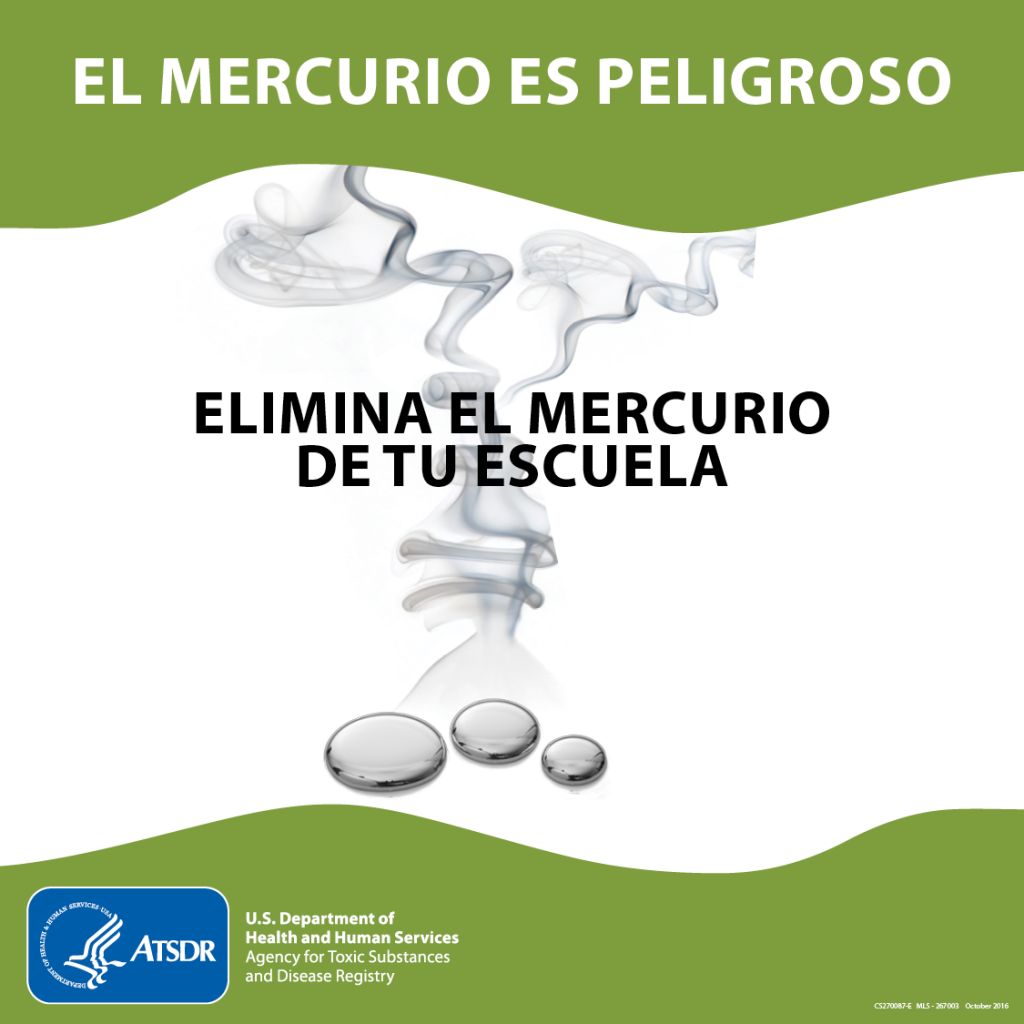ATSDR launches new Don’t Mess with Mercury Training Videos for Teachers, School Administrators, and Staff
Posted on by
A top priority for the Agency for Toxic Substances and Disease Registry (ATSDR) is protecting people from harmful chemical exposures. ATSDR is joining the effort to increase mercury safety.
Each year, the U.S. Environmental Protection Agency is involved in approximately 60 mercury cleanups across the United States. Schools are the most common location for these spills. Mercury is present in many common schools items and science labs. Spilled mercury may cause serious health problems, is expensive to clean, requires throwing away contaminated items, and can disrupt classroom activities and schedules.
Help Via Video
To respond to this threat, ATSDR has produced two teacher training and spill clean-up training videos. Available in both English and Spanish, the videos educate teachers, school administrators, and staff about the danger of mercury, methods for responding to a spill, and ways to make schools mercury free.
The Mercury: Danger in Your School video explains the following:
- Where you might find mercury and what are its chemical characteristics.
- How spilled mercury turns to a vapor that can cause serious health effects if breathed in.
- What health/financial/other consequences can happen after a mercury spill.
- Why teachers, administrators, and staff must have a mercury spill response plan in place.
The video shows a mercury spill response so viewers can see how to determine the size of the spill, know whom to work with when an outside cleanup group is needed, and understand what information to communicate to students and parents about the spill. Finally, the video discusses the importance of developing a mercury-free school policy, including tips on taking an audit of mercury containing items and choosing mercury-free alternatives.
The second video, Mercury Spill Cleanup, explains how to perform these tasks:
- Take an inventory of your mercury products.
- Prepare for a spill by making a spill clean-up kit.
- Respond to a mercury spill, including determining the size of the spill.
- Clean up a small spill.
- Contact and work with outside professionals in the event of a large mercury spill.
Like the Mercury: Danger in Your School video, this video also provides a mercury overview and information on mercury health effects and consequences. In addition, it educates teachers and school staff, especially custodial and maintenance professionals, about the proper clean-up of a mercury spill. It shows step-by-step instructions for a small spill clean-up.
What Is Mercury?
Mercury is a liquid, silvery-white metal, used in some thermometers, thermostats, electrical switches, and school science labs. Its unique look might make you want to touch it—but mercury is poisonous! Breathing mercury vapors can affect the nervous system, damage the kidneys, and harm other parts of the body.
Mercury spills are often caused by youth who play with it and spread it through their schools and homes. Clean-up costs for large mercury spills in schools have ranged from $100,000 to over $1 million and have resulted in days to months of school closures. The ATSDR DontMessWithMercury website provides educational materials and tools for students, teachers, and school administrators in English and Spanish to help prevent mercury exposure incidents.
For More Information
Visit the DontMessWithMercury website or contact ATSDR Health Educator Sue Casteel at dontmesswithhg@cdc.gov.
Tweet this: “ATSDR launches new Don’t Mess with Mercury Training Videos for Teachers, School Administrators, and Staff. Read more at https://bit.ly/2lkCIG6 #CDCEHblog via @CDCEnvironment”



Post a Comment